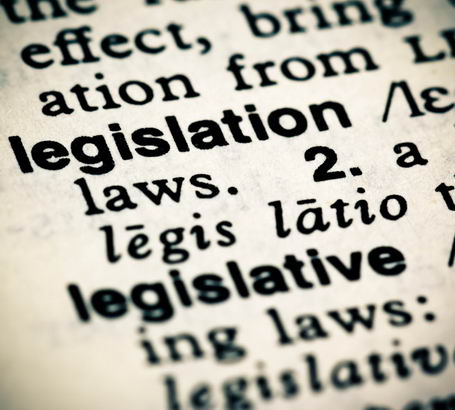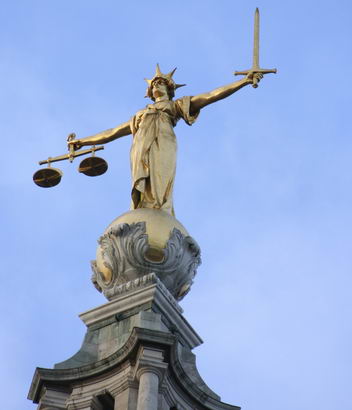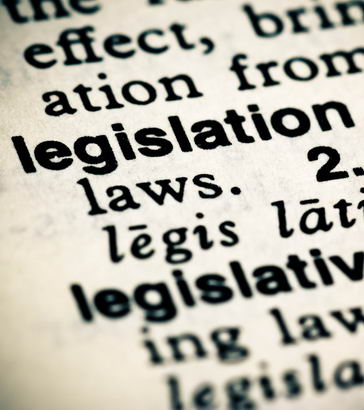
Legislation in England is made by Parliament. This broad legislative framework consists of:
- Statutes (Acts);
- Statutory Instruments (Regulations, Orders and Rules).
Statutory Instruments are supported by guidance.

Statutes (sometimes referred to as 'primary legislation') form the backbone of UK legislation and provide courts with the principles upon which government policy is enacted.
Significant statutes that apply to children/young people with disabilities and/or special educational needs include the:

SIs provide further detail, such as procedures and timescales.
They are often termed 'secondary legislation', but carry the same legal force as statutes.
For example, The Special Educational Needs and Disability Regulations 2014 include the legal requirements concerning the making and review of Education, Health and Care (EHC) Plans under the Children and Families Act 2014.

Guidance may include Codes of Practice and Standards. Guidance may be statutory or non-statutory (often termed practice guidance).
It is possible to choose alternative actions from those laid down within guidance without contravening the law. This is under the proviso that actions taken, or not taken, can be justified.
In general, where a statute or SI instructs to 'act in accordance with' a set of guidance, then there is little reason for not doing so. If the instruction is to 'have regard to', then there is more room for flexible interpretation. However, this does not mean that the guidance can be completely ignored.

Legislation can be implemented by individuals and organisations through actions that they:
- Are required to undertake (these are duties); or:
- May decide to undertake (these are powers).
These are sometimes referred to, respectively, as mandatory ('must', 'shall') and permissive ('may') gateways.

Although a 'power' might not always be used, it should never simply be 'put to one side'. Every time that a situation occurs where a power can be used, the agency holding the power (eg a local authority) must decide whether or not it is appropriate to exercise that power.
For example, local authorities may have the power to provide a specific children's/young people's service, eg laundry assistance. Even if the authority is struggling to provide services, it is not legally allowed to ignore this power.
Instead, having referred to the guidance, the local authority may then, after considering each child/young person, determine that it will provide these services to all, some or none of the children/young people within its area. It cannot, however, choose not to consider whether the services are relevant for each child/young person.

The legislative framework in England has a fluid nature. New Acts and Regulations are formulated every year. These may:
- Stand alongside existing legislation; or
- Make changes to existing Acts; or
- Remove existing Acts from the statute book.
Changes in government policies will often require new statutes to facilitate changes in practice.
In the light of what you have read, which of the following may be SIs?
- Regulations;
- Acts;
- Orders;
- Policies;
- Practice guidance;
- Rules.
the correct answer.
Correct answer: a., c. and f.
Explanatory note:
- Regulations, Orders and Rules may constitute SIs, that is the secondary legislation used to apply statutes, providing detail of procedures and specific requirements such as timescales.
- Acts are the primary legislation, often referred to as statutes.
- Policies and practice guidance may be published by a range of agencies, including Parliament, to provide context and guidance on how legislation should be interpreted or implemented. However, they are not legislation.
If a local authority has the legal power to carry out an assessment of the needs of all children/young people within its area, then it:
- Must assess all children/young people within its area;
- May assess all children/young people within its area;
- May assess some children/young people within its area;
- Can ignore this part of the legislation;
- Must assess only some children/young people within
its area; - May assess none of the children/young people within
its area.
Correct answer: b., c. and f.
Explanatory note:
- This power allows assessments to be undertaken.
- Whether these assessments are undertaken will be decided by the local authority according to available guidance.
- Having referred to the guidance, the local authority may then, after considering each child/young person, determine that it will assess all, some or none of the children/young people within its area. It cannot, however, choose not to consider whether an assessment is relevant for each child/young person.
Is the statement 'The law in England does not reflect international treaties':
- True; or
- False.
Correct answer: False
Explanatory note:
- English law operates within an international context.
- The United Kingdom has signed several treaties, such as the European Convention on Human Rights 1950 (ECHR), which determines that English law upholds the articles of these treaties.
- The Human Rights Act 1998 brings the ECHR within UK legalisation.
The decision of a Court of Appeal can form the basis of future legal judgements. This judgement is typically referred to as:
- An Order;
- Good practice;
- Case law;
- Convention.
Correct answer: Case law
Explanatory note:
Case law is the common term applied to the process by which the interpretation of a law by a judge making a decision during court proceedings forms a precedent for all later judgements on the same point of law.

Legislation and guidance
- European Convention on Human Rights 1950 (amended)
- Chronically Sick and Disabled Persons Act 1970
- Children Act 1989
- Education Act 1996
- Human Rights Act 1998
- Mental Capacity Act 2005
- Equality Act 2010
- Children and Families Act 2014
- The Special Educational Needs and Disability Regulations 2014
- Care Act 2014